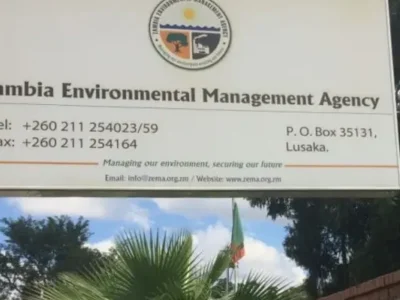The Centre for Trade and Policy Development (CTPD) has urged government to invest in agriculture innovation and technology to support resilient food production system in Zambia.
Researcher for Trade and Development, Emmanuel Muma, said there was also need for increased coordination between the Ministry of Agriculture and the Ministry of Technology and Science.
Muma said in a statement issued in Lusaka on Wednesday that this was in order to increase agricultural productivity through innovative technology and sustainable practices.
He said as food insecurity grows globally due to rising costs, conflicts and climate change that disrupt production and supply chains, investment in agriculture innovation and technology was critical.
“The World Bank Food Security Update Report reveals that, the number of people going hungry has been gradually rising since 2015,” Muma said.
He said in 2022, food insecurity increased significantly with about 735 million people facing hunger around the world, or 122 million more people than in 2019, before the pandemic.
Muma said this was particularly apparent in the Central and Southern African region where nations like Kenya and the Democratic Republic of the Congo were increasing their demand for food to meet national food deficits.
“CTPD believes it is crucial for the government, particularly through the Ministry of Agriculture, to recognise that meeting the growing demand for food will necessitate increasing food production volumes,” he said.
Read More: President Hichilema calls for amendment of laws limiting growth in agriculture sector

Muma said this could be achieved either by expanding the cultivated agricultural land or by utilizing technology to enhance productivity.
He said as evident, government, through the Comprehensive Agricultural Transformation Support Programme (CATSP) aimed to double the yields of small-scale farmers from the current average of two metric tonnes per hectare to four metric tonnes per hectare by the year 2027.
“However, pursuing these goals necessitates critical thinking to achieve sustainable production practices that do not harm the environment,” Muma said.
WARNING! All rights reserved. This material, and other digital content on this website, may not be reproduced, published, broadcast, rewritten or redistributed in whole or in part without prior express permission from ZAMBIA MONITOR












Comments